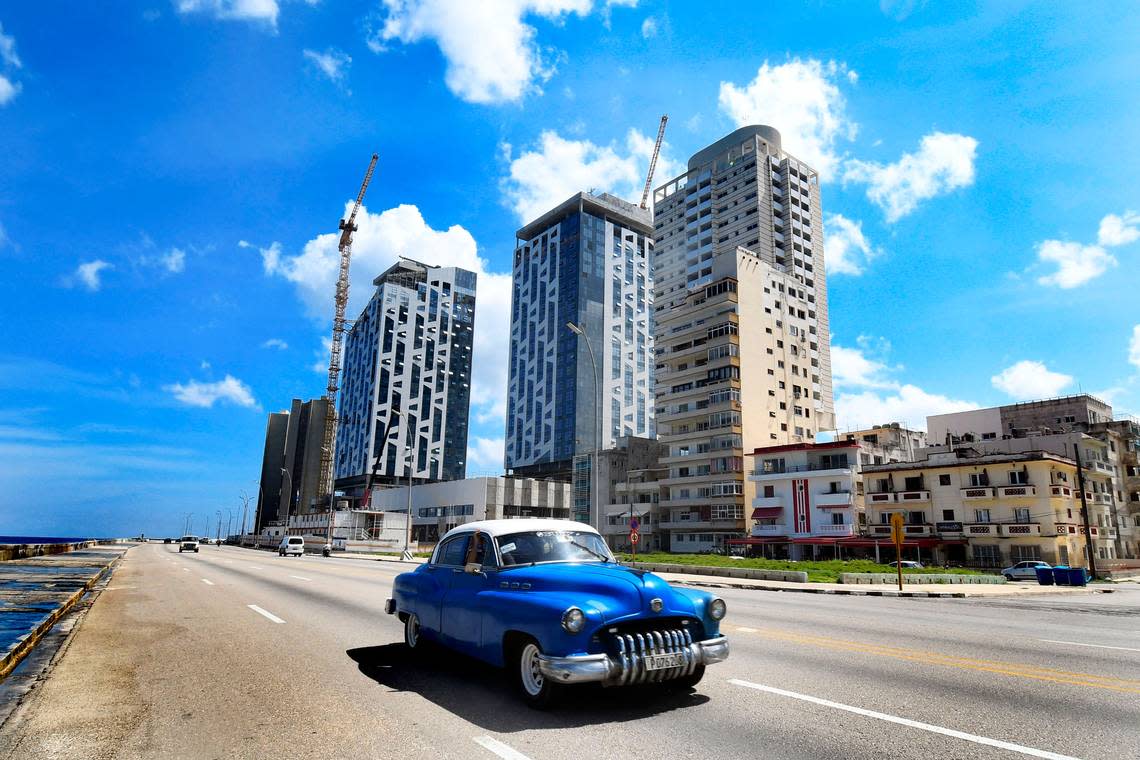Could Cubans abroad lose their homes on the island? Here’s what a new proposed law says

A recently proposed overhaul of immigration laws in Cuba falls short of eliminating the restrictions of rights for Cubans living abroad, and it includes new provisions that might jeopardize property rights for some people, although much remains unclear because of the document’s lack of details.
Contrary to early media reports, the draft of a new immigration law published this week by Cuba’s National Assembly maintains distinctions between people living permanently on the island and those living abroad. It divides the latter into three categories: “resident abroad” — those who live in other countries and don’t have “effective residence” in Cuba; “emigres” who have left, and those with newly created “business” or “investor” status.
The proposal clarifies that only Cubans classified by migration authorities as permanent residents on the island will have full citizenship rights and “enjoy the guaranteed rights established by the Constitution... and other regulatory provisions.” No similar statements exist in the text for Cubans living abroad in any of the three categories described.
The draft of the new law eliminates the much-derided two-year maximum period for Cubans to be abroad before they were considered “emigres” and stripped of their residency, other property and political rights. Under this rule, those living abroad but returning to the island at least once within that period could keep their residency status and properties but may not vote.
That two-year provision had been suspended since 2020. But it was substituted in the proposal with the much more stringent notion of “effective residence,” which would require spending “most of the time” in a calendar year in the country or a combination of time and “material evidence demonstrating ties in the country.”
Under such rules, those classified as “resident abroad” — a large portion of recent migrants — will not be able to maintain their residency on the island as before, leaving open the question of property rights. Currently, only Cubans with permanent residence can own homes or private businesses.
The proposal does not mention property rights. Unless specifically authorized in the companion regulations that have not been published or in future housing regulations, the new provision raises the possibility that Cubans living abroad may not be able to keep their homes on the island for much longer if permanent residence onm the island continues to be a requirement for home ownership.
The draft legislation also does not eliminate the “emigre” status, stating that Cubans declared as such before the law is enacted would maintain that status unless they apply to change it to “resident abroad” under procedures not described in the text. The document does not describe the benefits of such a change in status.
In a state television show Thursday, a senior Ministry of Interior official commenting on the proposal dodged questions about property rights.
“The issue of economic rights, which is something that is also asked a lot, well, the law does not have any direct relationship with the exercise of those rights,” said the ministry’s chief legal advisor, Lieut. Col. Raylan Hernández Concepción, when asked by the host if, with the new law, Cubans “would no longer lose their rights here.”
He said the immigration proposal “does not apply any formula that goes against the exercise of those rights” and that other laws should define them.
The Ministry of Interior’s head of the immigration section, Col. Roberto Aguilera Puig, made clear that the intention behind the new law is to tighten controls over who can obtain permanent residence on the island.
He said the “effective residence” requirement would allow the ministry to know more accurately who resides in the country. Another “benefit,” he said, is that it would shut down two legal pathways that previously allowed Cuban migrants to maintain their permanent residence on the island while still residing and spending much of their time abroad: a special permit to live abroad, known as a PRE, and a process known as “repatriation.”
The “effective residence” measure, he said, “would solve the legal contradiction of considering that Cuban citizens who hold the status of residents abroad maintain their domicile in Cuba.”
The officials said they expected the proposal to be voted on by the National Assembly in July.
Except those already declared as “emigres,” Cubans living abroad will have 180 days “to decide whether to return to the country and submit to the new regulations on effective residence or… be considered residents abroad,” Hernandez Concepcion said.
Several media reports focused on the elimination of the 24-month maximum for a Cuban to live abroad before losing their rights, and concluded that the immigration proposal would allow Cubans abroad to keep their properties on the island.
But some experts warn that without all the details, it remains unclear if that would be true.
“The fact of having eliminated the 24-month term does not mean that the immigration policy of the Cuban regime has changed,” said Eloy Viera Cañive, a Cuban lawyer and collaborator of Cuban news outlet El Toque.
“Nothing has changed in the Cuban regime’s logic of limiting the rights of emigrants or people who decide to leave Cuba,” he said. “We have to wait for future regulations or modifications of other regulations to understand the extent of the limitations.”

